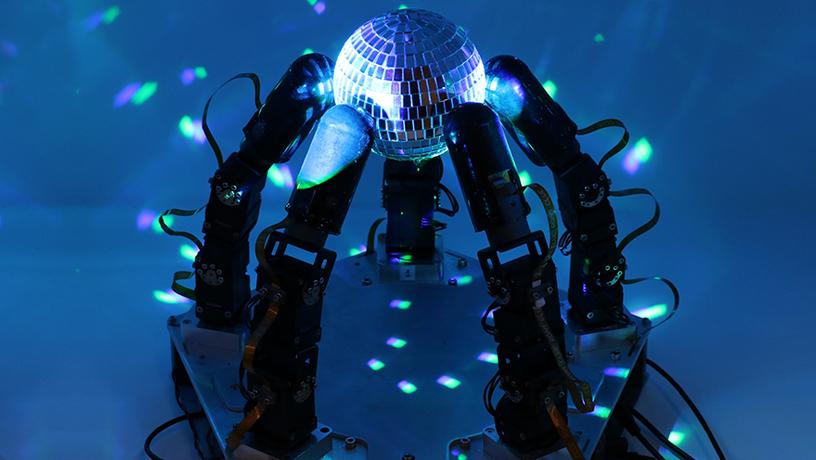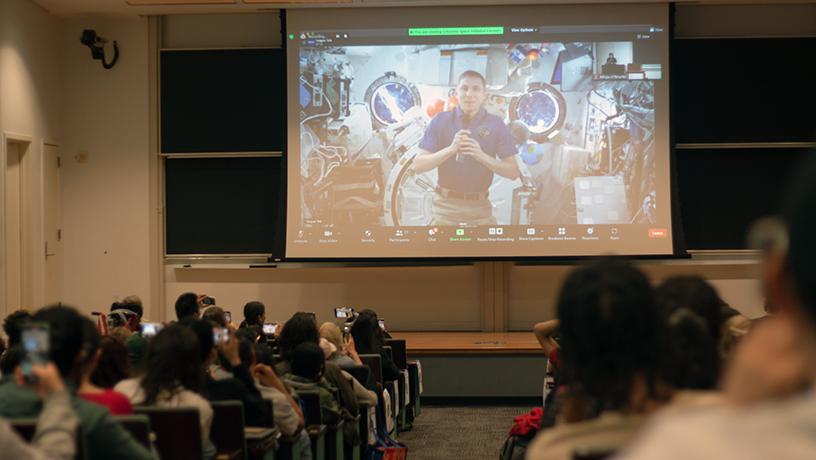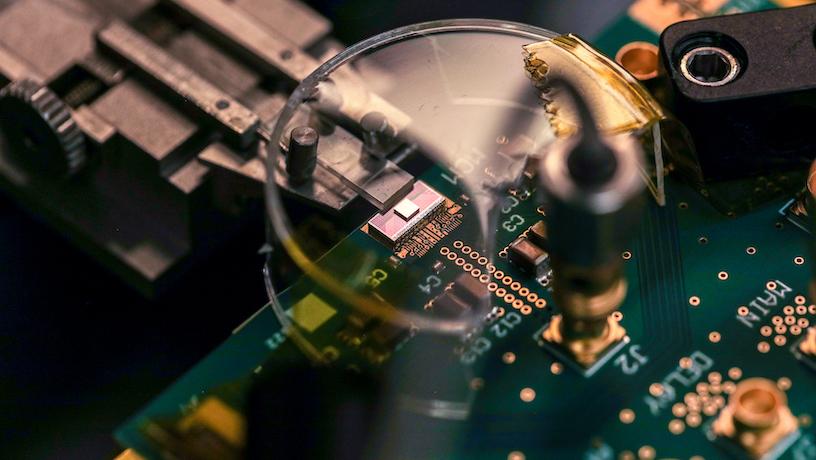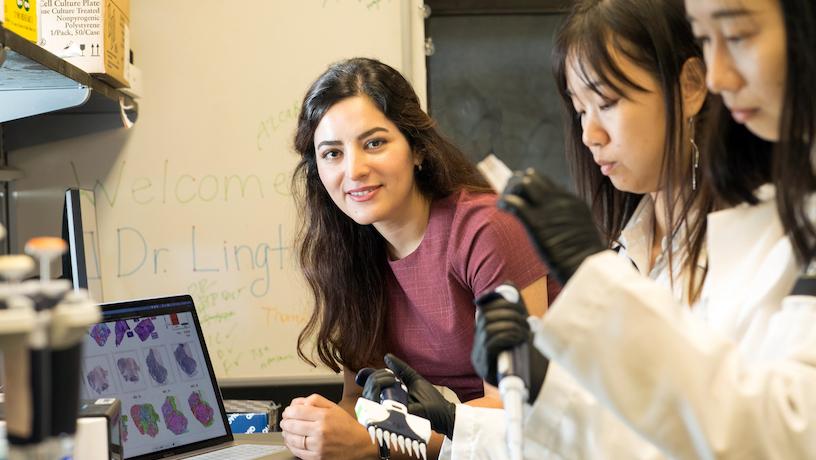2023 – Groundbreaking Ideas and Advances in AI, Climate Change, and More
In 2023, we pushed the boundaries of what’s possible to create a thriving future for humanity.
At Columbia Engineering, more than 250 faculty, 200 research staff, and 6000 students created and shared an enormous amount of knowledge in 2023. Here are a few highlights from a remarkable year.
Invention and Discovery

Researchers at Columbia Engineering have demonstrated a highly dexterous robot hand, one that combines an advanced sense of touch with motor learning algorithms in order to achieve a high level of dexterity. Credit: Columbia University ROAM Lab
Across its nine departments and countless research centers, Columbia Engineering researchers pushed the boundaries of what’s possible. The Motor Drives and Power Electronics Laboratory is helping electrify the energy system through its partnership with an automotive startup to create a revolutionary platform for electric vehicles. Associate Professor Matei Ciocarlie and his team developed a groundbreaking robotic hand. Dion Khodagholy led a team that developed a fully organic biosensor powered by the body’s own energy. Synthetic biologist Tal Danino made great strides in creating therapeutics for some of the hardest-to-treat types of cancer. A number of advancements in 3D-printed and laser-cooked food garnered press coverage from outlets ranging from WIRED to the Late Show with Stephen Colbert. We published The Information Issue of Columbia Engineering magazine, featuring several research projects that address some of the biggest challenges presented by the tremendous evolution of AI technology.
Classroom Innovation

NASA Astronaut Warren “Woody” Hoburg video calls students from the ISS. Credit: Claudio Solano
In the spring, graduating seniors presented their final projects at the Senior Design Expo. The Columbia Space Initiative hosted a live conversation with astronaut Warren “Woody” Hoburg while he was aboard the International Space Station, not an easy feat! Students in the VLSI design lab designed their own circuits, which corporate partner Apple manufactured and delivered to campus for the students to test. Columbia Engineering partnered with Columbia Business School to welcome the inaugural cohort of the MBAxMS program, which prepares students to lead organizations solving some of the most challenging problems in tech. Faculty from Engineering and Columbia’s Faculty of Arts and Sciences partnered to offer a master’s program in Quantum Science and Technology. Quantitative finance pioneer Armen Avanessians MS’83 spoke to undergraduate and graduate students in his capacity as the first Silberstein Family Executive in Residence.
Trailblazing Centers

Columbia Engineering has won a $35 million five-year grant to establish the Center for Ubiquitous Connectivity (CUbiC) and advance energy-efficient communications technologies for addressing the vastly growing connectivity bottlenecks between data-hungry wireless devices and deluged data centers. Credit: Center for Ubiquitous Connectivity
Two large groups of researchers led by Columbia Engineering faculty received large investments from the federal government to advance understanding and technology in two vital areas. The $35 million Center for Ubiquitous Connectivity will advance energy-efficient communications technologies to handle the vast and growing quantities of data flowing from digital devices to data centers. The $20 million AI Institute for Artificial and Natural Intelligence seeks to create new paradigms of interdisciplinary research among neuroscience, cognitive science, and AI.
Driving Vital Conversations
Columbia Engineering professor Chris Wiggins and Columbia School of Social Work professor Courtney Cogburn explore the promise and pitfalls of using data to understand the world — and to change it.
Leading data scientist Chris Wiggins co-wrote a book on the history of data and its many (mis)uses over more than a century. For Climate Week NYC, three faculty members explained how new technologies should be deployed to decrease carbon emissions in some of the most difficult sectors, and Professor Manu Lall explained what needs to be done to ensure access to clean drinking water for everyone. In a year when everyone was talking about AI, roboticist Hod Lipson continued to speak out in academic forums and the media as one of the technology’s chief proponents.
Honors and Recognitions
A selection of our 2023 awardees

Named the 2024 Early-Career Scientist, as part of the Innovators in Science Award administered by the New York Academy of Sciences and sponsored by Takeda, Elham Azizi is a rising star in the field of computational cancer immunology. Credit: Timothy Lee/Herbert Irving Comprehensive Cancer Center
Our researchers received awards and recognition from a wide range of organizations, including leading scholarly associations and respected news outlets. Three faculty members — Dean Shih-Fu Chang, Donald Goldfarb, Christopher H. Scholz — and PhD alumna Regina Barzilay were elected into the National Academy of Engineering. Helen Lu was named a 2023 fellow of the National Academy of Inventors. Computer science professors Christos Papadimitriou and Mihalis Yannakakis won the prestigious John von Neumann Theory Prize. The New York Academy of Sciences awarded professor Elham Azizi the 2024 Innovators in Science Award. Time Magazine recognized Professor Matei Ciocarlie’s robotic hand (see above) and alumni startup Kinnos in its list of Best Inventions of 2023. The Kinnos founders began developing their technology in response to a Columbia Engineering design challenge for solutions to the Ebola outbreak.
